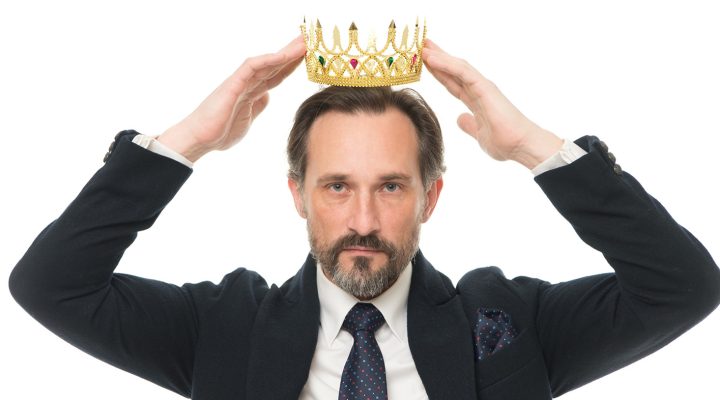In this time of increased, and justified, attention to gender inequities, I have been thinking about my own life. It occurs to me that while I have supported women colleagues, female students and girls within my circle of family and friends for many years, I have been blind to the innate privileges I enjoy and the advantages from which I benefit because I was born a male.
While intellectually understanding the difficulties women face in the home, school, workplace or society and believing strongly in the feminist movement’s advocacy of equal rights for women, I have not been shielded from my own subconscious sexism. I suspect if you are a man, you have not been completely aware of the ways your being male has privileged you also.

Robert Sellers
I was born into a wonderful family, where my dad was a Baptist scholar-pastor and my mom a supportive, “ideal” preacher’s wife. They were good role models of 1950s gender identity and marriage, open-minded yet still very traditional.
My sister is seven years my senior, and to hear her tell it, I was treated like a prince — one who would inherit both my dad’s character and calling. In the congregations my father served when I was a boy and adolescent, it was common for someone to ask me, affirmingly, “Robert, are you going to grow up and be a preacher like your dad?”
My sister probably did not experience the same level of interest in her future from well-meaning congregants. I am sure she was loved and admired by many, but her path was foreseeable, although not predetermined. At Stetson University, she studied elementary education, a very popular major for young women. And, not surprisingly, she married a young Baptist minister, so she spent her career as a pastor’s wife and substitute school teacher.
“In the years before she left for college, she was given only a bicycle, because she was told that as a girl she didn’t really need a car.”
Noting the difference with which my parents treated us, as their son and daughter, my sister likes to point out that before I was a college sophomore, they already had given me three cars — an English-built Morris Minor, a Chevrolet Corvair with four-on-the-floor, and a brand-new Ford Mustang. In the years before she left for college, she was given only a bicycle, because she was told that as a girl she didn’t really need a car. For my sister still to remember this unfair distinction as symbolic of how she and I were treated differently by our loving parents tells me that at the time it was a very hurtful slight, indeed.
When the young people of First Baptist Church of Tampa chose their leaders for Youth Week during my senior year of high school, I was chosen as youth pastor. Perhaps that was because I was the son of the actual pastor or maybe my peers and adult leaders thought I was most qualified. But I think it was most likely because they felt of all the boys in the youth group, I was the most active and responsible — although I am sure there were some girls just as involved and capable.
Among other involvements at Mississippi College, my senior year I served as the Student Government’s chief justice, chairing the student committee that heard and exacted consequences for students charged with disregarding published college rules or with exhibiting behavior unacceptable for an MC student. I would like to assume that my peers chose me as a person of logic, integrity and compassion. But maybe I was simply viewed as the best male candidate running for the office.
I served in Indonesia two years as a missionary Journeyman when there were four other Journeymen, all female. I was the only one provided with a rental house in an Indonesian neighborhood where I might live alone, while the others were assigned housing with or next door to single women missionaries. I alone was assigned a Vespa scooter for transportation, while the others had to rely upon catching rides with career missionaries or taking public transportation. Could that discrepancy have been because I was a young man?
While my wife and I were career missionaries, my job title from our mission agency was “student evangelism” and hers was “home and church,” although she had just as much experience working with students. She had been a Journeyman student minister two years in Colombia, South America, later the assistant director of the Journeyman program, and when we were newlyweds, she was the BSU director at the University of North Carolina in Charlotte and taught ESL to international students at Central Piedmont Community College. She certainly had felt the same sense of calling to missions among students as I.
“On our first furlough, when Janie and I were to deliver the message in an Oklahoma Baptist church on a Sunday morning, the pastor introduced us as ‘Missionary Rob Sellers and his wife.’”
Back home, our parents were extremely proud of our work overseas, yet my sister amusingly referred to me, reflecting my parents’ elevated estimation of their son, as “Saint Robert of Indonesia.” On our first furlough, when Janie and I were to deliver the message in an Oklahoma Baptist church on a Sunday morning, the pastor introduced us as “Missionary Rob Sellers and his wife.” To be sure, I corrected that false understanding of who we were. Interestingly, this introduction echoed the way Indonesian Baptists referred to their pastoral team — as “Pendeta dan Istrinya” (“the pastor and his wife”) or introduced her as their “Ibu Pendeta” (“Mrs. Pastor”).
In 1987 we interrupted our mission service to complete graduate degrees at Southern Baptist Theological Seminary. I entered a Ph.D. program in theological ethics, where I was one of 10 males and one female in the incoming cohort. I had areas of specialization in theological ethics, social ethics, New Testament theology and world religions. All four of my major professors were male, until one retired and was replaced by a woman. Meanwhile, Janie earned the highest honor granted to Christian education students when she graduated with her master’s degree. Nevertheless, when we returned to Indonesia, we were reassigned to the Indonesian Baptist Theological Seminary in Semarang where only I was named a new faculty member. Janie initially was assigned to home school our children rather than teach in the seminary, a task for which she had trained, with excellence. Eventually, she was named to the faculty where she taught Christian education courses.
When we lost our visas to Indonesia and returned to the States in 1997, I found fulfillment and employment teaching at Truett Theological Seminary and Baylor’s religion department, then as a professor at Hardin-Simmons University. Janie, however, experienced a certain loss of identity and engagement with students that she had known in Indonesia. But, as was traditional, we were focused on getting a meaningful new job for me.
I was fortunate to be hired as the Connally Chair of Missions — later also as professor of theology — at Logsdon Seminary. During my 18 years on the faculty, I was one of 22 professors, 18 of whom were male. The majority of students also were men, although our seminary actively supported women in ministry. Although my female students were consistently bright and proficient, some who felt called were understandably hesitant to begin seminary training, having grown up in Baptist churches where they heard pastors proclaim that “God needs men to follow him into service,” or where someone had questioned their sense of calling to ministry as a female, or where they had observed church leadership dominated by males.
We celebrate our 50th wedding anniversary in a matter of days. As far back as the first year of our marriage, we have received mail addressed either to “Rev. and Mrs. Robert Sellers” or to “Dr. and Mrs. Robert Sellers.” Companies that call with information about a policy in both our names refuse to talk to Janie and always ask for me — although she was a college business major and handles all our business affairs. At invited dinners in the homes of friends, even family, I am almost always the one who is asked to lead a prayer of blessing. Although Janie often connects emotionally and spiritually with an audience better than I, invitations to speak to groups usually come to me. Finally, throughout our career, spanning a half-century, we always have moved to the places where I found work.
“She was grateful that he always answered, ‘I wouldn’t trade a single one of my girls for a cow pen full of boys!’”
Years ago, John Denver’s song ‘Thank God I’m a Country Boy” became one of my wife’s very favorite songs. Having grown up on a farm/ranch in Southeastern Oklahoma, Janie greatly appreciated her experiences of picking beans, chopping cotton, pulling corn, catching mice in the grain silo, or tromping greens in the back of a truck at midnight. She always has been proud to be the oldest of five girls born to a farmer who was highly respected and successful. When she was young, she remembers her dad being teased that he never had a son, only daughters, and she was grateful that he always answered, “I wouldn’t trade a single one of my girls for a cow pen full of boys!”
I imagine that her being so affirmed because of her gender might have been unusual. I’m guessing the majority of the boys who grew up in Haskell County could have simply resonated with an imaginary song, “Thank God I’m a Boy!” Interestingly, however, the privileged way many of those boys in Keota were treated was no different from the way boys were indulged in the urban culture of Tampa.
To be brutally honest, I have been privileged all of my life because I am a male. And my sister, female colleagues, friends and wife have no doubt been at a disadvantage, in multiple ways, because they are not males. Sometimes these differences have been subtle, at other times starkly apparent.
If you are a man reading this opinion piece, think about your own experience. I believe you will see parallels with what I have described from my own life. Haven’t you also been advantaged because of your gender? We live in a nation and culture that is more egalitarian than many others around the world. Yet, boys and men in our society often are given more privileges than girls and women. I hope you will learn to look at girls and women in your life — and their experiences — with a more generous, gracious and understanding eye. May we treat the females we know as our equals. Let us advocate for gender justice for them, as well as for those we never have met.
This is part of what it means to follow Jesus, to live as he did. He offered living water to the Samaritan woman at the well, healed the woman with a devastating hemorrhage who simply touched his robe, affirmed Mary who sat at his feet with the male disciples to learn from him, raised the dead son of the widow of Nain, saved the life and forgave the woman caught in adultery, resurrected the young daughter of Jairus, arranged for the care of his mother after he was gone, and entrusted the message that he was alive again to female disciples.
I have not always honored the girls and women in my life as Jesus did. Have you?
Rob Sellers is professor of theology and missions emeritus at Hardin-Simmons University’s Logsdon Seminary in Abilene, Texas. He is a past chair of the board of the Parliament of the World’s Religions in Chicago. He and his wife, Janie, served a quarter century as missionary teachers in Indonesia. They have two children and five grandchildren.
Related articles:
South African women’s soccer team success shines a light on gender wage discrimination
American Christianity in China also imports gender bias and Calvinism | Analysis by Rick Pidcock
West Texas Baptist university adopts new faith statement with strict emphasis on gender and marriage


